Day 2 of lock down in India, and thankfully things haven't become a lot worse here. We have still not hit the 1000 mark in number of COVID-19 cases. Though situation in the US and Spain has become a lot worse, which is terrifying.
Today I was reading this post by hedge fund manager Ray Dalio. He talks about how he reads history to understand what the world is going through. Since his job is based on having a more accurate model of the world, of course it makes sense for him to do so.
But doesn't it more or less apply to all of us? Especially those who are running their own ventures. We are always trying to predict what the world is gonna be 1-2 years down the line and build product for that future. Ray Dalio says that the best way to learn what is going to happen in future is to try to find similar patterns in the past. History never repeats, but it rhymes. The details are different but the broader patterns are similar.
So, if you are struggling with a challenging business problem or struggling to understand how to position your product in a competitive space - study history. How has this been done in the past. Surely it will give you some guidelines or frameworks to think about it.
As Dalio says, there are many things which we may be experiencing first time in our lives. But they are not happening for the first time in the world. Don't be an ant and react to what is happening. Take a seat back, try to study if something similar happened in the past - and try to form a model on how the future may pan out.
But this is not a one time thing. Don't assume that the first model you build will be perfect. You need to keep updating the model if there are any surprises. But having a model is a good point to start with.
PS: Dalio has some amazing resources at his two sites: https://www.principles.com/ and https://economicprinciples.org/. He also publishes detailed reports about his studies. Like this. If you are trying to better understand the world and predict the future - I am sure you will like these.
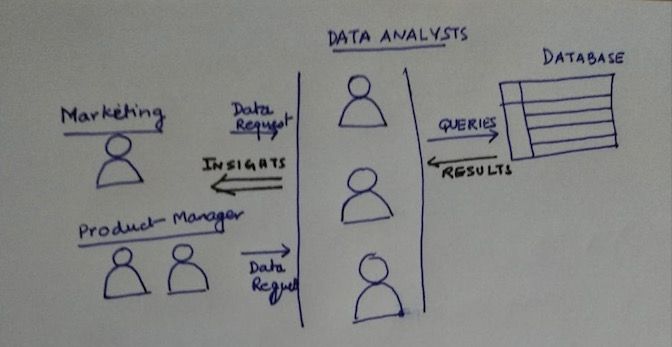 Data Analysts as bottlenecks
Now, the issue is - this needs good knowledge of how the data is being stored in the DBs and what type of values they have. For non-technical roles like marketing, PMs, this may be non-trivial problem to solve. Just having a data analyst doesn't solve the problem. Also, you are not entirely sure if the results which an analyst gives you is the exact thing which you are looking for.
Data Analysts as bottlenecks
Now, the issue is - this needs good knowledge of how the data is being stored in the DBs and what type of values they have. For non-technical roles like marketing, PMs, this may be non-trivial problem to solve. Just having a data analyst doesn't solve the problem. Also, you are not entirely sure if the results which an analyst gives you is the exact thing which you are looking for. 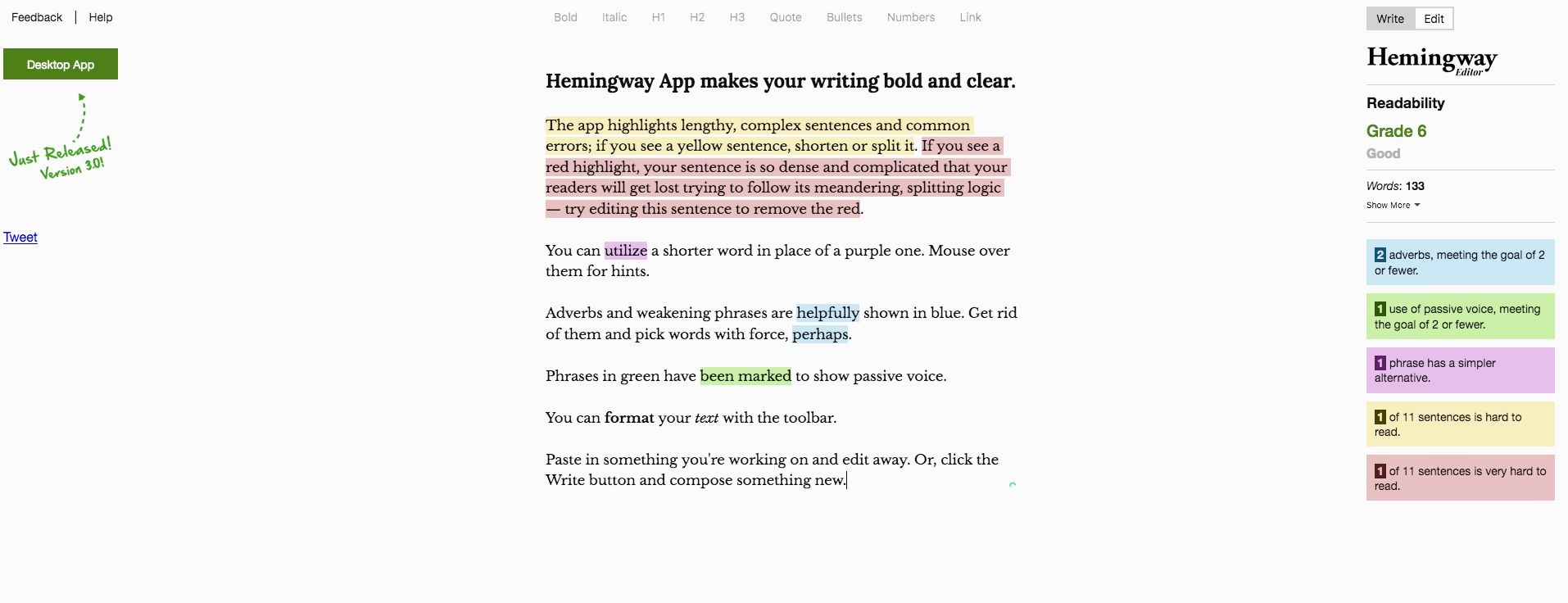 Landing Page of the Hemingway App
The prefilled text tells you what the app does - and demonstrates it live. It shows features like analyzing complexity of the sentences, adverb usages, etc. And once you have gone through the text, you can just edit the passage to test your own writing.
Landing Page of the Hemingway App
The prefilled text tells you what the app does - and demonstrates it live. It shows features like analyzing complexity of the sentences, adverb usages, etc. And once you have gone through the text, you can just edit the passage to test your own writing. Random company outing @ first job
I never felt as rich as I did in my first job - though I have earned several times what I used to earn at that time. Someone wise must have said something around - Happiness being the difference of what you expect and what you get.
Random company outing @ first job
I never felt as rich as I did in my first job - though I have earned several times what I used to earn at that time. Someone wise must have said something around - Happiness being the difference of what you expect and what you get. 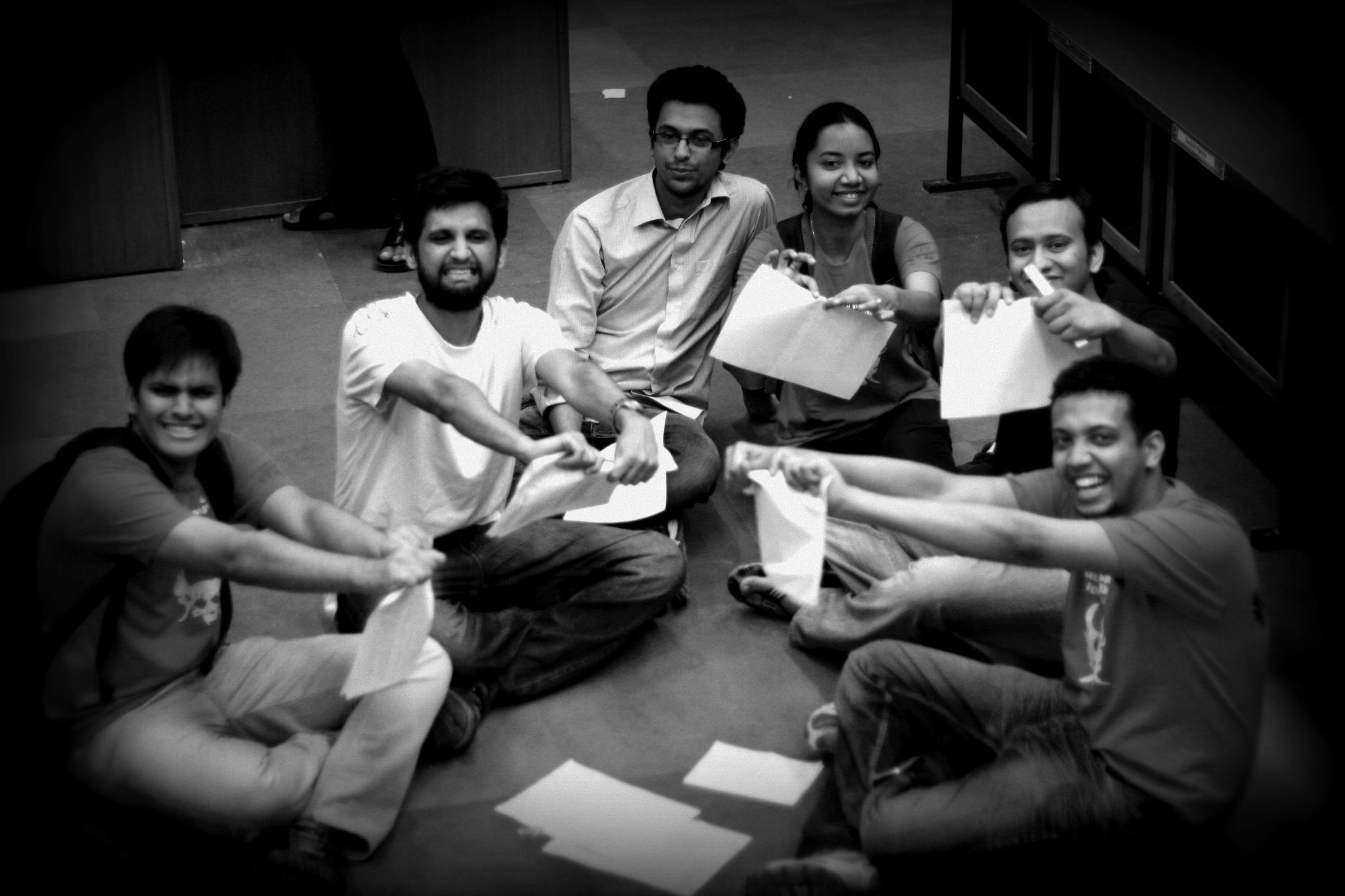 Last quiz of first year
Last quiz of first year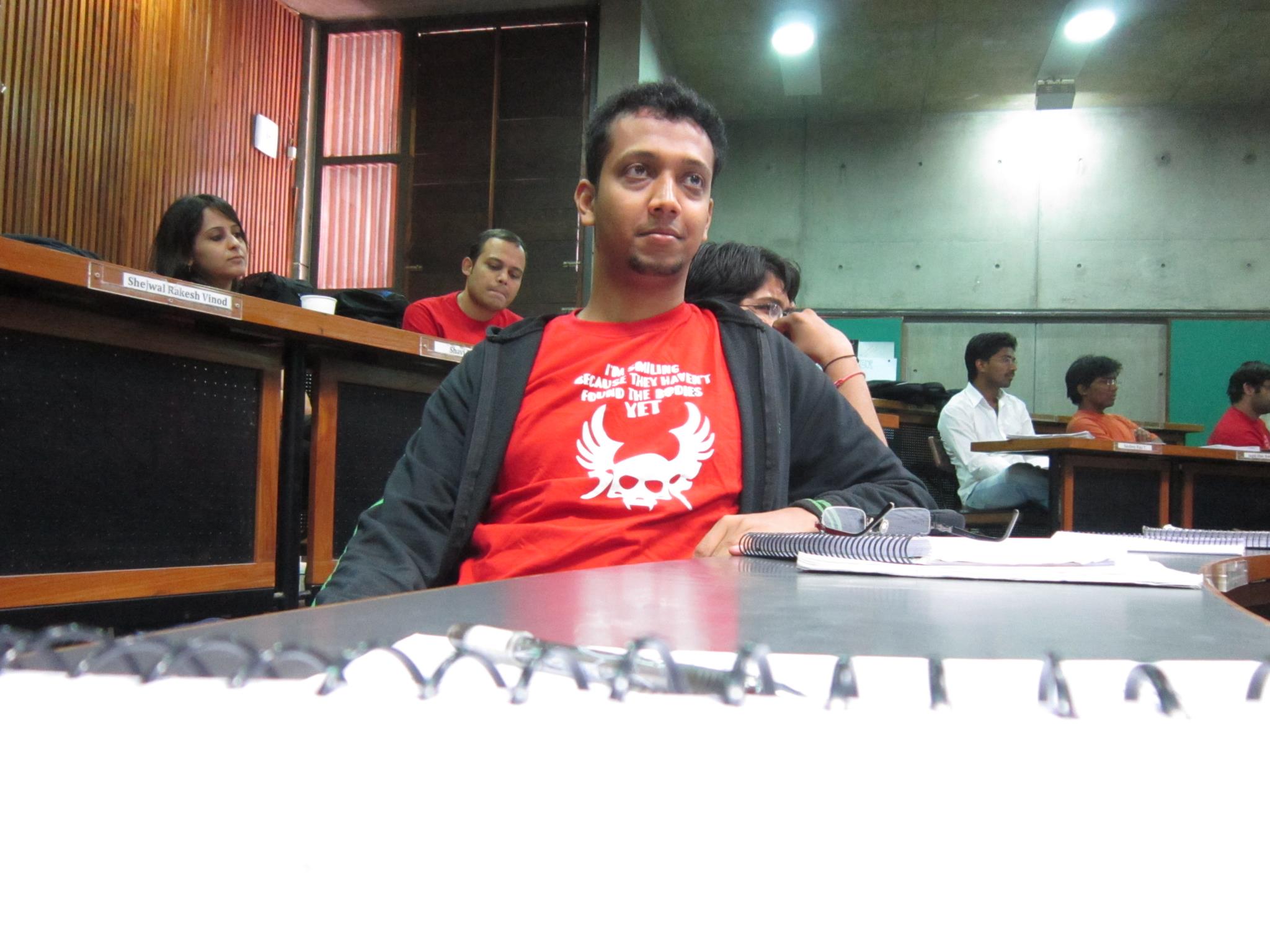 In our section - First year@WIMWI
We used to joke that dogs at IIMA had much better lives than they students. Rushing to the classes in the morning, we would see dogs peacefully basking in the fresh sun - and we would be so envious of them. But things got better with time.
In our section - First year@WIMWI
We used to joke that dogs at IIMA had much better lives than they students. Rushing to the classes in the morning, we would see dogs peacefully basking in the fresh sun - and we would be so envious of them. But things got better with time. Some random street in London circa 2012
Some random street in London circa 2012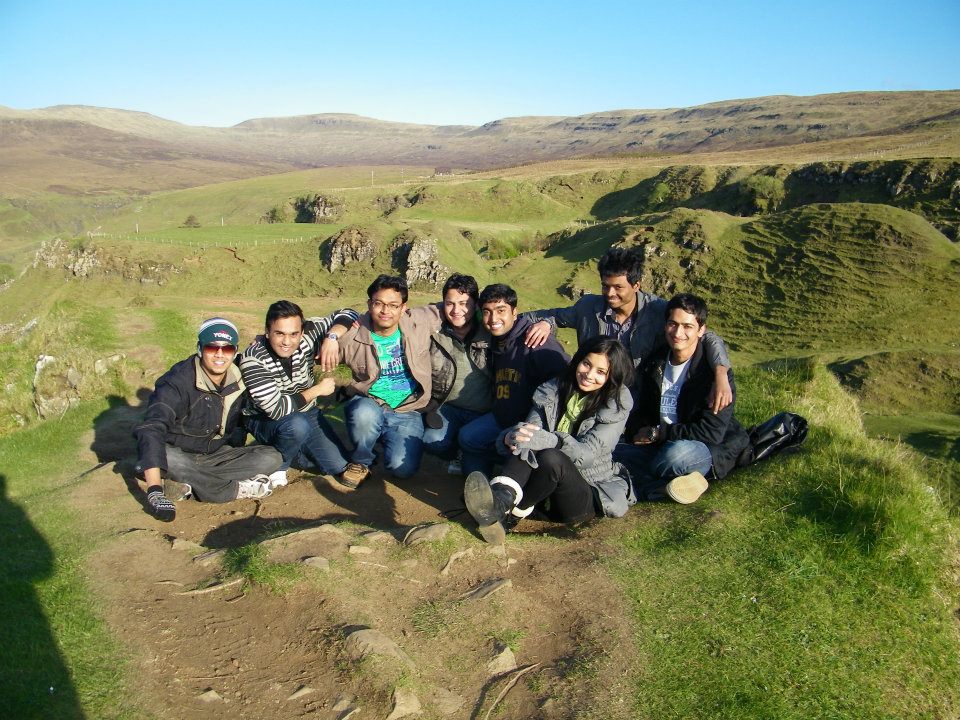 Isle of Skye - Scotland
It was not that the internship stipend was meagre - in fact it was quite abundant. But, I couldn't make myself spend money after multiplying all prices by 80 (1 GBP was ~80 INR then) - so a 5 GBP coffee would quickly translate in my mind to 400 INR - and it was difficult for me to shell that amout for a mere coffee :)
Isle of Skye - Scotland
It was not that the internship stipend was meagre - in fact it was quite abundant. But, I couldn't make myself spend money after multiplying all prices by 80 (1 GBP was ~80 INR then) - so a 5 GBP coffee would quickly translate in my mind to 400 INR - and it was difficult for me to shell that amout for a mere coffee :)